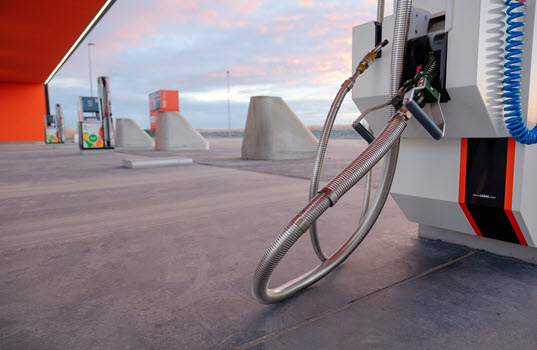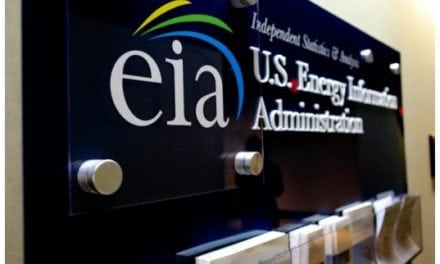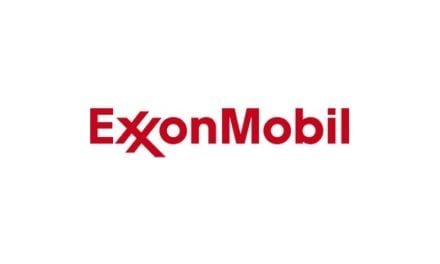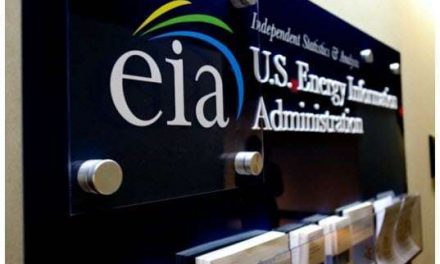Sponsored
At Dover Fueling Solutions (DFS), we have provided alternative energy solutions to our global customers for years. Most recently, with Dover’s acquisition of LIQAL, a turnkey supplier of liquefied natural gas (LNG) and hydrogen refueling equipment and solutions and micro liquefaction solutions, we are now best positioned to help power the next era of transportation.
We sat down with Lise-Lotte Nordholm, DFS’ vice president of dispenser engineering and new product development, based in Sweden, and Jorg Raven, LIQAL’s founder and CEO, located in the Netherlands, to discuss all things alternative energy and its future within the fuel and convenience retail industry.
Can you tell us a little bit more about the LIQAL/DFS partnership?
RAVEN: The partnership came about almost naturally, as the demand for alternative fueling solutions has increased considerably over the past few years. LIQAL has found a great partner in DFS, resulting in a relationship that will grow our sales reach and strengthen production capabilities. DFS now has technology for LNG and hydrogen fueling in their product portfolio to complement their end-to-end offering to clients. In the field of digitalization of fueling stations, both LIQAL and DFS have great products that reinforce each other.
NORDHOLM: LIQAL is truly a great addition to DFS as we continue to expand our activities in the alternative energy segment.
What prompted you to move into alternative energies, specifically LNG and hydrogen?
NORDHOLM: DFS has provided dispensing solutions for the retail fueling industry for 130 years, and alternative energy has always played a big part in our product offering. We are committed to supporting our customers regardless of the energy types they work with. This requires us to follow market trends closely to make sure we have the right solutions in place at the right time, which is why we are now extending our portfolio to include LNG and hydrogen.
RAVEN: LIQAL was founded on the basic idea that we need to move away from oil-based fuels for mobility to minimize emissions of CO2 and other pollutants. Combining that with our gas technology expertise resulted into our focus on LNG and hydrogen.
What role does LNG and hydrogen now play in DFS?
NORDHOLM: The introduction of LNG and hydrogen products is a great addition to the DFS product portfolio, and it further strengthens our position in the alternative energy segment.
RAVEN: These are increasingly important fuels for our clients. We think alternative fuels in general (electricity included) will reshape the mobility and fueling landscape globally in a short timeframe.
How do you see the demand for alternative energy progressing over the next few years, as consumers are becoming more conscious over their carbon footprint?
NORDHOLM: There is certainly a move toward a more environmentally-conscious consumer, and we are seeing our customers actively investing in lower-carbon fuels. This trend will undoubtedly continue, but we should also note that the transition of a car fleet takes many years. So, for us at DFS, it’s important to also stay focused on conventional fueling products and solutions at the same time as we work to support the new energy types becoming more in-demand.
RAVEN: On a global scale, the demand for alternative transport fuels is still small; however, in some local markets, demand for change is strong. Specifically, European legislation and climate awareness driving progress toward zero-emission mobility.
What are the key drivers for the adoption of alternative energy?
NORDHOLM: The key driver is certainly to reduce “our” carbon footprint, and there are several alternative energy types, including LNG and hydrogen, available today to support that movement.
RAVEN: Alongside reducing our carbon footprint, global warming and changing legislation has resulted in an increased awareness of our impact on the environment. Additionally, there are other factors like costs, accessibility, safety and ease of use when it comes to alternative energy technology that determine the speed of adoption. Those factors are the ones that DFS and LIQAL are working on together.
What are common challenges you see facing the industry?
NORDHOLM: There are currently so many different energy types in demand, and our customers — fuel retail site owners — need to cater for them all. Our job is to make that as easy as possible by having products and solutions in place that enable them to deliver alternative fuels within existing site infrastructures.
RAVEN: It’s also a new market with relatively new technology, which needs to mature and at the same time grow incredibly. This creates challenges with product improvements and supply chains.
How do you think DFS/LIQAL can shape the future of alternative energy in the fueling and convenience retail industry?
RAVEN: I think we can shape the future by providing excellent technology to our clients that allows them to make the transition from conventional fuels to alternative fuels much more easily, not only for single fuel stations, but for their complete fuel retail networks. This means data insights and digitalization will play a large role. Shaping the future means DFS and LIQAL must lead the way on how to get there.
NORDHOLM: We can do this by being a one-stop provider of fuel dispensing equipment and offering our customers’ the expertise they require, while ensuring our alternative energy equipment can be integrated into our customers’ “normal” site infrastructure with end-to-end solutions.
What are your plans for the future?
NORDHOLM: DFS will stay committed to catering for all energy demands in the retail fueling industry and will continue to monitor market trends to make sure our product portfolio fully meets what our customers are looking for at the right time.









